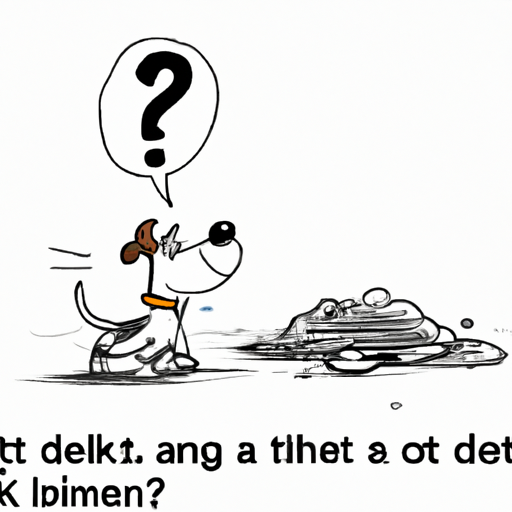If you’ve ever taken your furry friend for a walk or let them out in the backyard, you’ve probably observed a peculiar behavior. Once your dog has finished doing their business, they often kick up grass and dirt with their hind legs. While this might seem strange or even comical to us, there’s actually a variety of reasons as to why dogs kick dirt after peeing.
Table of Contents
- The Art of Scent Marking
- Emotional Factors
- Health Concerns
- Training Your Dog
- Frequently Asked Questions
Key Takeaways
- Dogs kick dirt after peeing as a form of scent marking.
- Emotional factors such as anxiety or excitement can also trigger this behavior.
- Certain health issues can cause a dog to excessively kick dirt.
- Positive reinforcement training can help manage this behavior.
The Art of Scent Marking
Dogs have a highly developed sense of smell, far surpassing our own. It’s one of their primary ways of communicating with the world around them. When a dog urinates, they’re leaving behind their signature scent. By kicking up dirt and grass, they’re further spreading their smell and marking their territory. According to American Kennel Club, dogs have scent glands in their paws. When they scrape the ground, these glands release a unique scent that is added to their urine’s signature smell. This behavior is an instinctual way for dogs to communicate their presence to other dogs.
You can learn more about dogs’ scent marking behaviors here.
Emotional Factors
Emotions also play a role in why dogs kick dirt after peeing. If your dog is feeling particularly excited or anxious, they may exhibit this behavior more often. Excitement can be triggered by the sight of another dog, a new environment, or simply the joy of being outdoors. Anxiety, on the other hand, may be due to an unfamiliar environment, the presence of other dogs marking the same area, or even past traumatic experiences.
Health Concerns
While kicking dirt after peeing is a normal behavior for dogs, excessive or obsessive kicking can indicate underlying health issues. Dermatitis, allergies, and other skin conditions can make your dog’s paws itchy, causing them to kick more frequently. If you notice any changes in your dog’s behavior, it’s always a good idea to consult with a veterinarian.
For more information on dog health and wellness, check out this article.
Training Your Dog
If your dog’s kicking behavior is causing damage to your lawn or becoming a nuisance during walks, it might be necessary to train them out of this habit. Positive reinforcement training, which involves rewarding your dog for desired behavior, can be an effective method.
Here are some steps you can take:
1. Interrupt the behavior: As soon as your dog finishes peeing, distract them with a treat or toy before they start kicking.
2. Reward the desired behavior: When your dog finishes peeing without kicking, reward them with a treat or praise.
3. Be consistent: Training takes time and patience. Keep at it, and eventually, your dog should begin to associate not kicking with positive outcomes.
For more training tips, check out this resource.
Frequently Asked Questions
1. Is it normal for dogs to kick dirt after peeing?
Yes, it’s a normal behavior that helps dogs spread their scent and mark their territory.
2. Should I be worried if my dog is excessively kicking?
Excessive kicking can indicate a health issue, particularly if it’s accompanied by other symptoms like redness, swelling, or changes in behavior. Consult with a veterinarian if you’re concerned.
3. Can I train my dog to stop kicking dirt after peeing?
Yes, positive reinforcement training can help manage this behavior. Be consistent and patient with your training.
In conclusion, understanding the reason why dogs kick dirt after peeing can deepen our understanding of our pets and their unique behaviors. It’s a fascinating insight into the complex world of canine communication, and a reminder that our dogs are not just our companions, but intricate beings with their own ways of interacting with the world.



